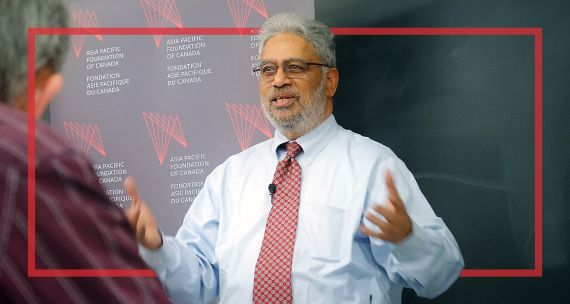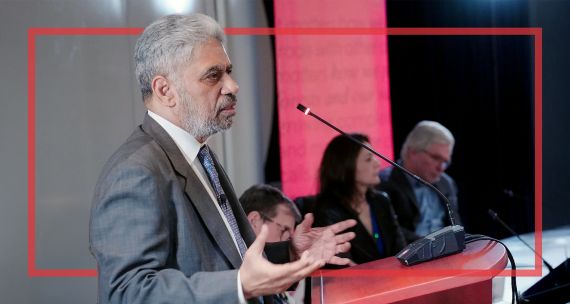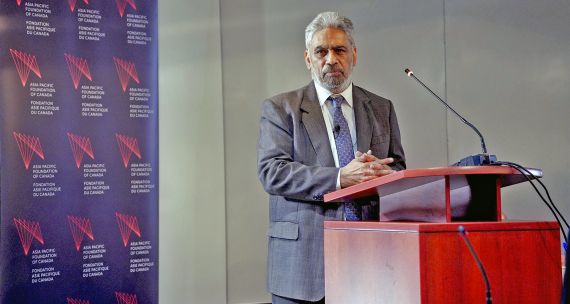Every assumption we’ve made about Canada’s place in the world over the past 80 years is open to question. We can no longer rely on others to safeguard our prosperity and security. It is up to us — guided by our interests, values, and a renewed sense of identity and common purpose.
In this context, whoever forms the Canadian government after the April 28 election must make the case for Canada to re-engage — effectively and pragmatically — with India. India is far too important to our economic and security future to ignore.
Twenty years ago, India’s economy was smaller than Canada’s. Now it is almost twice as large. It is already the world’s fifth-largest economy and is on track to become the third. At the same time, India’s importance as a regional and aspiring global power has steadily grown. Our engagement must reflect this reality — grounded in understanding and co-operation where possible, while not shying away from honest, respectful, and constructive dialogue about our differences.
This will require political courage. Canadians currently view India with suspicion and unease. A December 2024 Angus Reid Institute poll, conducted in partnership with the Asia Pacific Foundation of Canada, found that public sentiment toward India had soured dramatically. Views of the world’s largest democracy now resemble those toward authoritarian powers like China and Russia. This follows allegations that Indian officials were involved in the June 2023 murder of Khalistani activist Hardeep Singh Nijjar on Canadian soil, along with other alleged incidents of “transnational repression.”
While the Nijjar case cannot be ignored, this episode — however serious — should not dictate the entirety of our policy. We must stay focused on the bigger picture: an unstable, rapidly evolving global order where economic and security partnerships are more essential than ever. Letting investigations and court proceedings unfold without unnecessary political interference is key to restoring dialogue and finding a potential way out — just as it was in a related case in the United States.
Three months into the return of U.S. President Donald Trump, even what remained of the liberal international order has been upended. Canada must urgently revisit and modernize its assumptions about alliances and global partnerships. This includes extending our foreign policy focus beyond the traditional “like-minded” and G7 frameworks (although we would do well to invite Indian Prime Minister Narendra Modi to this year’s G7 leaders’ meeting in Kananaskis, Alberta). Building diverse, resilient, and substantive relationships is essential to protecting Canada’s sovereignty and prosperity.
This recalibration also serves another purpose: making Canada more relevant to Washington. Consider Australia’s example: by combining a robust alliance with the U.S. and deepening its ties in Asia, Australia has positioned itself as a meaningful player in the Indo-Pacific — not just a bilateral partner, but a regional actor. Canada must do the same, bearing in mind the differences in our geography and global roles.
It is untenable for us to maintain dysfunctional relationships with both China and India — the world’s two most populous countries and soon to be the two largest economies in the dynamic Indo-Pacific region. Our increasingly unpredictable relationship with the U.S. only adds urgency to this shift. Canada cannot afford to remain narrowly anchored to its traditional partners if it is to thrive in the world that is emerging.
India deserves a more thoughtful and strategic approach. While the relationship began with promise — leaders like Louis St-Laurent and Jawaharlal Nehru envisioned partnership in a post-imperial world — decades of distance, divergent worldviews, and mutual misunderstanding have left the relationship underdeveloped.
People-to-people ties with India have flourished, especially through immigration and education. These links have enormously enriched Canadian society and economy. But Canadian political leaders and policymakers have continued to default to a U.S.- and Europe-centric (and sometimes China-centric, at least in Asia) worldview, with little sustained attention to India’s evolution.
Too often, our understanding of India has not reflected its strategic importance. While there has been a lot of talk about the importance of the Indo-Pacific, few of our policy thinkers and leaders have more than limited appreciation of the world’s largest country, its complexities, and the balance of the issues at play for Canada. This has allowed the relationship to become a tool of domestic politics rather than one of strategic engagement rooted in Canada’s national interest. Rhetoric about shared democratic values has lacked depth. India’s pluralistic traditions, democratic institutions, pragmatic non-aligned posture, and, more recently, the rise of Hindu nationalism all require informed, careful engagement rather than superficial or moralizing commentary. Meanwhile, the complementary potential of the Canadian and Indian economies goes largely unexploited.
India’s global ascent is not guaranteed, and we should not exaggerate its near-term potential. But its role in shaping the next world order is undeniable. Crucially, India is committed to modernizing — not dismantling — global institutions. This opens real opportunities for collaboration with Canada on multilateral reform and global governance.
India’s rise will involve both clashing and complementary interests. The key is sustained engagement and mutual understanding. Canadians must come to terms with India as it is — not as we might wish it to be — and resist the impulse to lecture. Understanding how Indians view themselves and their global role is foundational to any serious partnership.
As McGill University professor T.V. Paul writes in The Unfinished Quest: India’s Search for Major Power Status from Nehru to Modi, “India is the pivotal state to prevent hegemony of any single state in the Indo-Pacific.”
As Canadians grow increasingly concerned about a more assertive China under President Xi Jinping and an unreliable U.S. under Trump, the question is no longer whether we need a serious, strategic relationship with India — but how.





